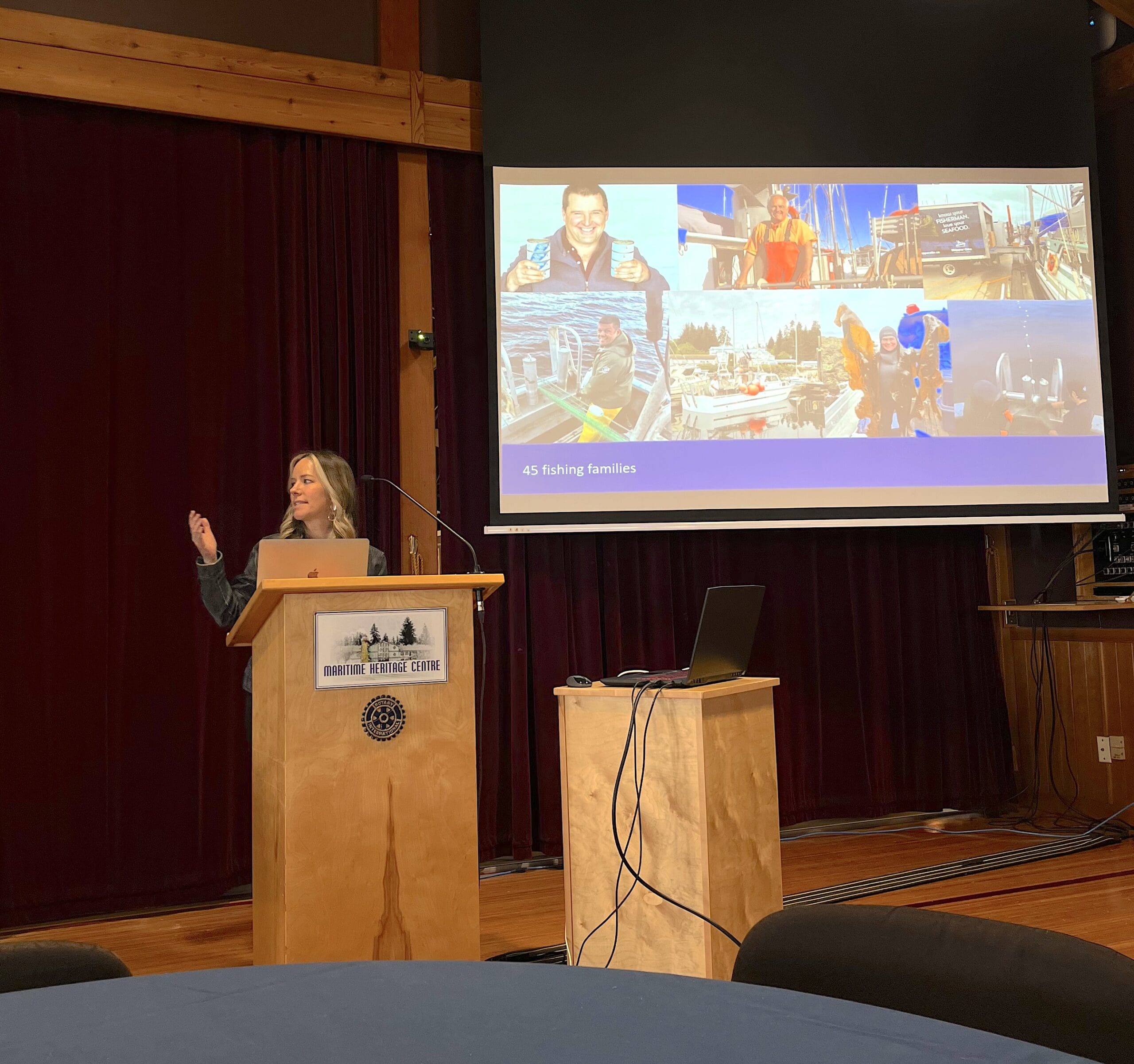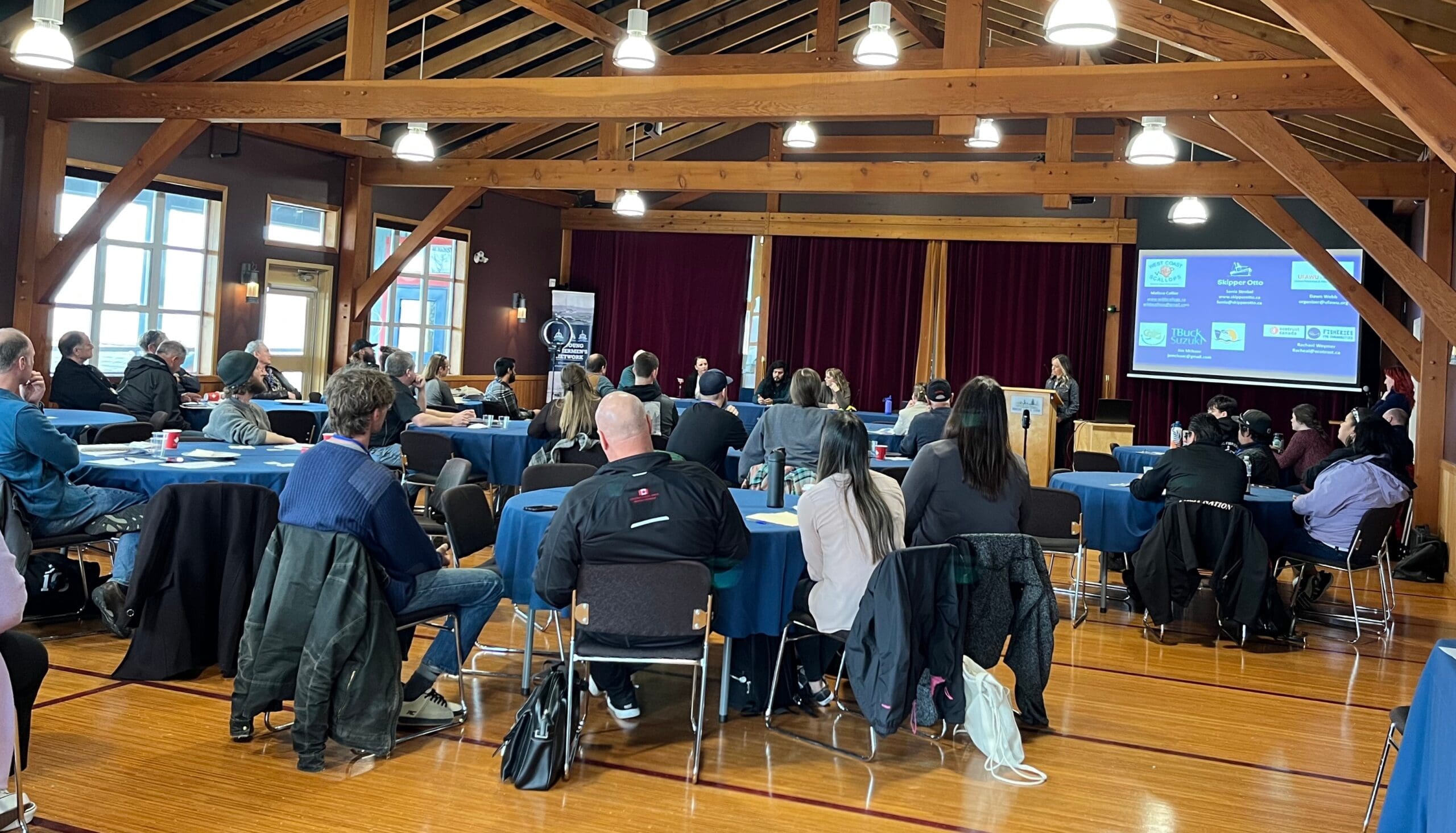Stronger Together: BC Young Fishermen's Gathering
NewsThis year’s BC Young Fishermen’s Gathering in Campbell River was a powerful antidote to the fragmented trends that impact the fishing industry in Canada.

The fishing industry in Canada has been really good at breaking apart connections over the last 150 years. It has separated consumers from harvesters through long complex supply chains; pitted Indigenous and non-Indigenous harvesters against one another and moved the industry out of the hands of independent families. The resulting scarcity mentality and pervasive “us vs them” sentiments common in the industry have led to a “divide and conquer” situation where the voices of independent harvesters are fragmented and easy to ignore. This has contributed to the demise of small-scale, community-based fisheries since the loud voices heard by people in power are those of big business monopolies and export-oriented fishing enterprises.
But this year’s BC Young Fishermen’s Gathering in Campbell River was a powerful antidote to these fragmenting trends. Harvesters from across a wide swath of BC -- young women and men just entering the industry, self-proclaimed “old timers,” Indigenous and non-Indigenous folks alike – came together in late March to sit together, eat together, laugh together and share information and concerns. They shared tips on navigating complex license registration and reporting systems. They told their stories and listened to one another. They learned about each other’s fisheries and the challenges in each. And they built camaraderie while practicing cold water rescue drills.
All expressed unanimous fear about their dwindling access to the resource, the results of consolidation of licenses and quotas into the hands of investors, and opaque processes around Marine Protected Area planning. The federal government is pushing aggressive conservation closures at a much higher percentage on the BC coast than in the Arctic or Atlantic coasts. The government is also refusing to engage in a multi-stakeholder process that worked successfully in Haida Gwaii which allowed fishers to work together with scientists to meet or exceed conservation goals while minimizing economic hardships. The group acknowledged the need to come together around these issues.
 We also celebrated the wins when harvesters, the union, industry associations, NGO’s, engaged MP’s, the public and Skipper Otto all worked together over recent years. A key win was the protection of the practice of spot prawn tailing, tubbing, and freezing at sea. A further success is that interactions between prawn harvesters and DFO managers has become much more positive and collaborative since that incident in 2021 (read more about our spot prawn advocacy work here). The opening of the Skeena River sockeye fishery in 2022 was one of several advances towards making science-based decisions around salmon openings. The group discussed why and how we were successful in advocating for fish harvesters' needs in recent years and applied those lessons to upcoming challenges we’re all facing in the industry. In that work, it became clear that we are stronger together. That we have more in common than that divides us. And that when fishing families get into the same room, we deeply respect and support one another.
We also celebrated the wins when harvesters, the union, industry associations, NGO’s, engaged MP’s, the public and Skipper Otto all worked together over recent years. A key win was the protection of the practice of spot prawn tailing, tubbing, and freezing at sea. A further success is that interactions between prawn harvesters and DFO managers has become much more positive and collaborative since that incident in 2021 (read more about our spot prawn advocacy work here). The opening of the Skeena River sockeye fishery in 2022 was one of several advances towards making science-based decisions around salmon openings. The group discussed why and how we were successful in advocating for fish harvesters' needs in recent years and applied those lessons to upcoming challenges we’re all facing in the industry. In that work, it became clear that we are stronger together. That we have more in common than that divides us. And that when fishing families get into the same room, we deeply respect and support one another.
On the 2nd day of the conference, we honoured Helen Beans, one of the strongest, most compassionate women in fishing I’ve ever known. Helen was a ‘Namgis nation multi-generational fisher from Alert Bay who was the first woman in BC to earn her 60 tonne captain’s ticket. She was the Vice President of the UFAWU and a strong advocate for harvesters all up and down this coast. We lost Helen tragically in summer of 2022 and her friend Kyle Louis and his 7-year old daughter, the youngest Indigenous woman harvester at the event, stood up to pay tribute to Helen. Helen’s legacy is one of unity. She had words of tough love for all of us, urging us to stand up and stand together when we see injustice in our industry and our communities.
In the words of one of the veteran fishermen at the conference, “There’s reason to hope. Now that I see all the work you’re all doing and I see the success you’re having, I feel like maybe there IS a future in fishing for future generations.”
And so, we continue on, fighting the good fight, not only with hope, but through action.
- Sonia Strobel
